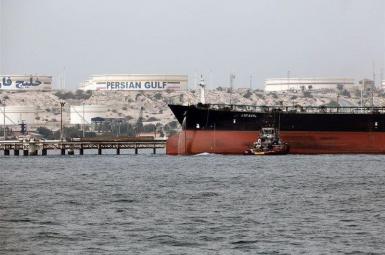
Is Rouhani a Defender of Republicanism and Free Elections?
At a meeting with governors of provinces, Hassan Rouhani made an intriguing comment: “I worry about the day when being a republican is considered a crime…turning elections into pure formality is the biggest threat to democracy.”
Even though it is not the first time Rouhani makes such statements, he pointed criticism at the current situation more severely. He continued: “some people do not like the word Referendum, but our elections were based on a referendum. The referendum forms the essential foundation of our Constitution. After the members of the Assembly of Experts were elected, it was the referendum that made the Constitution. Needless to say, the legitimacy and basis of us all come from the Constitution and the Constitution takes its legitimacy from the people and their votes, in an Islamic framework.”
Ironically, Rouhani finds opposition to the referendum as dangerous as the Coronavirus, when, holding a position of the defender of the people’s rights, he has effectively shown little respect for people’s choice, much less in the form of a referendum. The most recent and prominent form of people’s collective presence was during the November protests. Rouhani was in the deciding team behind the gas price hike, but he tried to distance himself from this controversial move. After it was leaked that the president had known about the plan three days before it was announced, he sought to justify himself in other ways.
Following the brutal suppression of the Iranian protests in November, as the elected president of the people, not only did Rouhani do little to back his voters who, in desperate hope of a better situation, had re-elected him in 2017, but as the head of the Supreme National Security Council, he showed his real face as an intelligence agent when he defended airing false confessions taken from detained protesters.
Considering his background in intelligence services, how does Rouhani expect people to believe his claims in defense of the referendum and democracy?
Internal Feud or Defending People’s Rights?
Bearing Rouhani’s past and his experience as a security agent in mind, his recent criticism regarding the Guardian Council’s disqualification of candidates for the upcoming Parliamentary elections has less to do with concern over people and republicanism, and more with the following reasons:
- Following the attacks he received from fundamentalists after the US left the nuclear agreement, Rouhani has pushed for a referendum and popular vote. When the sanctions intensified, he emphasized on negotiating with the US and declared this a decision to be made by the Iranian people.
- When the Guardian Council rejected the remaining two bills out of the four pieces of legislation required by the F.A.T.F, Rouhani mentioned referendum again. He has aimed to find a way out of the extreme economic crisis resulting directly from the US exponential sanctions against Iran over the past two years.
- The Guardian Council’s purge of election candidates in the past four decades has rendered the elections to a formality assigning rather than electing politicians; however, this level of retaliation and disqualifying candidates that happened over the past few days has been unprecedented. Out of 247 current MPs, 90 candidates who were running for the upcoming parliamentary elections were disqualified and out of 640 reformist candidates, only 40 candidates have been accepted by the Council. Rouhani is, therefore, more concerned about the structural removal of reformist and moderate forces than the unprecedented huge number of disqualifications.
- After the unexpected disqualification of Ali Motahhari, a fundamentalist MP, and later a Friday Prayer Imam, who had run for both parliamentary and Assembly of Experts elections and was banned on account of “not abiding by the Islamic law”, it is generally believed that public turnout would fall to its lowest in February. This has worried Rouhani and even a portion of the fundamentalist party. Rouhani slams the Guardian Council's approach in disqualifying candidates and has publicly urged people to participate in the election, which shows his lack of regard for the people’s position in the current situation.
- Considering these motives, it can be argued that Rouhani’s populist slogans signify nothing but an internal feud between the reformists and moderates on one side and the Guardian Council and Khamenei on the other, over survival in Iranian politics.
What Worries a Former Intelligence Officer?
Rouhani has always claimed that he is a legislator and not a military agent; yet, his intelligence background says otherwise. We shall bear in mind that in 2013, when the reformists had despaired of a reformist figure winning the elections, they reached an agreement with the moderate supporters of Hashemi Rafsanjani, who were more inclined toward the fundamentalists, to introduce only one candidate and, hence, raise the number of their votes. That is how Mohammad Reza Aref, the reformist candidate, was set aside to make room for Hassan Rouhani, the moderate candidate.
Hashemi Rafsanjani has always been held in high esteem by Rouhani; it is, therefore, clear that his priority is not people’s satisfaction or votes, rather the survival of the regime. He is now concerned over two things: first, lack of public participation will push the regime to a dangerous slope, especially with the terrible pressure from the sanctions, the possibility of military conflict in the region and more protests inside Iran; second, he cannot run for president again, and the banning of reformists and the homogenization of political power in the regime, with a majority-fundamentalist parliament, would mean he will have no part in the future power division.
With ostensibly critical and benevolent reactions, Rouhani strives to recreate the position Hashemi Rafsanjani once held before him. What he does not recognize is that he will never have the influence and acumen that Rafsanjani, who brought Khamenei to power, had.









